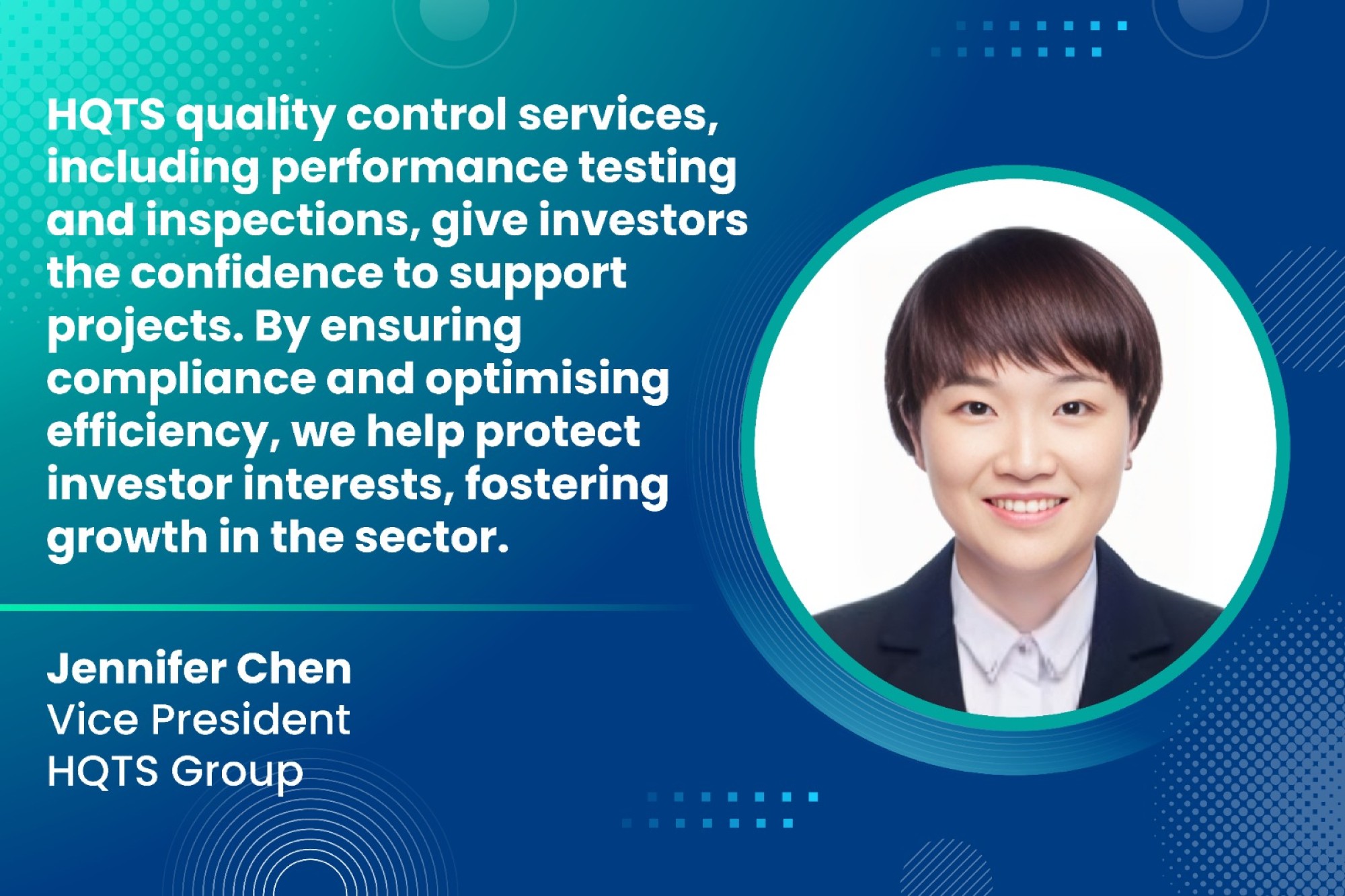Quality control is the keystone of the solar energy revolution in India
By EPR Magazine Editorial November 13, 2024 2:00 pm IST
By EPR Magazine Editorial November 13, 2024 2:00 pm IST

As India strives for 500 GW of solar capacity, rigorous quality assurance is essential to ensure system reliability, attract investment, enhance efficiency, and secure a sustainable energy future.
India’s rapid transition to a renewable energy powerhouse is a pivotal global story. With the ambitious target of achieving 500 Gigawatts (GW) of solar capacity under the National Solar Mission, we are witnessing a significant push toward a cleaner future. However, to ensure this transition’s success, one critical factor cannot be overlooked: quality control. At HQTS, rigorous quality assurance is crucial for securing the long-term viability of the solar energy sector in India.
Having overseen solar projects across continents, Jennifer Chen, Vice President—HQTS Group, has seen how quality control can be the difference between success and failure. The dedication to quality isn’t just a service; it is a commitment to ensuring the solar future thrives in India.
Ensuring system longevity and reliability
Strong quality control is essential for the longevity and reliability of solar installations. Poor-quality components lead to failures and increased costs, especially in rooftop photovoltaic (RTPV) systems. Robust quality checks ensure consistent performance and expected returns throughout the operational lifespan.
Building investor confidence
The solar industry in India attracts significant investment, but concerns over poor-quality solar projects can hinder this momentum. HQTS quality control services, including performance testing and inspections, give investors the confidence to support projects. By ensuring compliance and optimising efficiency, the firm helps protect investor interests, fostering growth in the sector.
Incorporating data and trends
With India set to increase its solar capacity to 500 GW, the risks from low-quality installations are significant. Recent studies show that poor-quality components can reduce solar system efficiency by up to 30 percent, impacting ROI. HQTS’s mission is to safeguard investments by ensuring that every installation meets the highest standards of quality and efficiency.
Ensuring safety and reducing risks
Quality control also encompasses safety. Poorly installed solar systems pose serious risks, particularly in densely populated areas. By adhering to strict safety standards and conducting thorough inspections, HQTS can ensure that installations are safe and reliable, protecting lives and property.Improving energy efficiency
Energy efficiency is at the heart of solar technology. Low-quality materials or improper installation can drastically reduce output. Rigorous quality control ensures solar installations operate at peak efficiency, maximising returns for consumers and investors.
The future of solar power in India is bright, but it is imperative that we ensure that the systems we develop today are built to last. Encouraging collaboration among industry leaders, investors, and solar project developers is essential for upholding our projects’ highest quality control standards. Together, we can create a sustainable solar ecosystem that confidently and excellently empowers India’s energy future.
Authored By : Jennifer Chen, Vice President—HQTS Group
We use cookies to personalize your experience. By continuing to visit this website you agree to our Terms & Conditions, Privacy Policy and Cookie Policy.